8 Things Not to Keep In Your Wallet This Holiday Season
It's that time of year again.

Profit and prosper with the best of Kiplinger's advice on investing, taxes, retirement, personal finance and much more. Delivered daily. Enter your email in the box and click Sign Me Up.
You are now subscribed
Your newsletter sign-up was successful
Want to add more newsletters?

Delivered daily
Kiplinger Today
Profit and prosper with the best of Kiplinger's advice on investing, taxes, retirement, personal finance and much more delivered daily. Smart money moves start here.

Sent five days a week
Kiplinger A Step Ahead
Get practical help to make better financial decisions in your everyday life, from spending to savings on top deals.

Delivered daily
Kiplinger Closing Bell
Get today's biggest financial and investing headlines delivered to your inbox every day the U.S. stock market is open.

Sent twice a week
Kiplinger Adviser Intel
Financial pros across the country share best practices and fresh tactics to preserve and grow your wealth.

Delivered weekly
Kiplinger Tax Tips
Trim your federal and state tax bills with practical tax-planning and tax-cutting strategies.

Sent twice a week
Kiplinger Retirement Tips
Your twice-a-week guide to planning and enjoying a financially secure and richly rewarding retirement

Sent bimonthly.
Kiplinger Adviser Angle
Insights for advisers, wealth managers and other financial professionals.

Sent twice a week
Kiplinger Investing Weekly
Your twice-a-week roundup of promising stocks, funds, companies and industries you should consider, ones you should avoid, and why.

Sent weekly for six weeks
Kiplinger Invest for Retirement
Your step-by-step six-part series on how to invest for retirement, from devising a successful strategy to exactly which investments to choose.
It's that time of year again. You're doing your holiday shopping in the midst of those distracting sales and crowds. You’re checking your gift lists (twice!) and your budget. You’re juggling bags and boxes. And you're paying little attention to your purse or wallet. These are the moments when identity thieves will strike.
“Pickpocketing can happen virtually anywhere, and people should be on their guard, especially while shopping this holiday season,” says Ken Chaplin, senior vice president at TransUnion. “Thieves take advantage of the shopping rush and its inherent distractions to steal wallets and, potentially, identities.”
With just your name and Social Security number, identity thieves can open new credit accounts and make costly purchases in your name. If they can get their hands on (and doctor) a government-issued photo ID, they can do even more damage, such as opening new bank accounts. These days, con artists are even profiting from tax-return fraud and health-care fraud, all with stolen IDs.
We talked with consumer-protection advocates to identify the eight things you should purge from your wallet immediately to limit your risk in case your wallet is lost or stolen.
And when you’re finished removing your wallet’s biggest information leaks, take a moment to photocopy everything you’ve left inside, front and back. Stash the copies in a secure location at home or in a safe-deposit box. The last thing you want to be wondering as you're reporting a stolen wallet is, “What exactly did I have in there?”
SEE ALSO:
KIPLINGER WEBINAR: Combating Identity Theft and Scams During the Holidays
p>
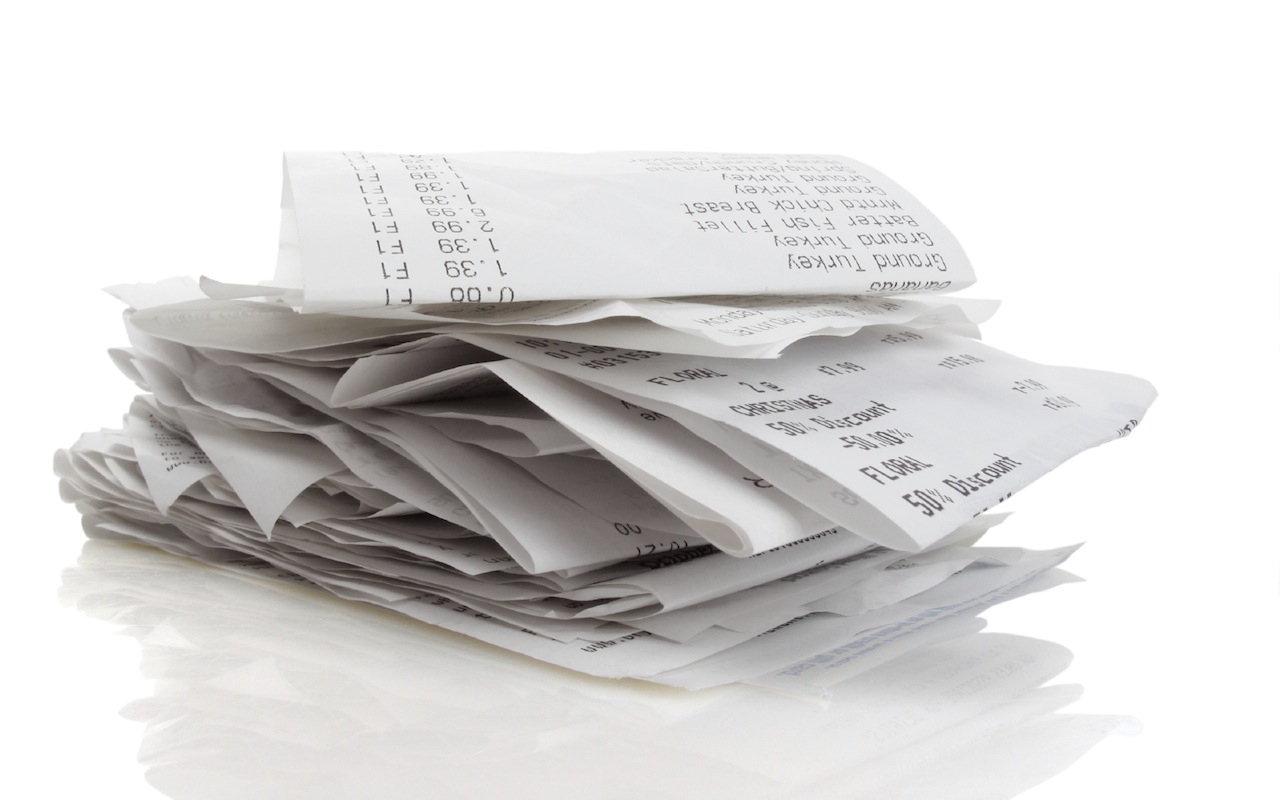
A Stack of Receipts
As of December 2003, businesses may not print anything containing your credit or debit card’s expiration date or more than the last five digits of your credit card number. Still, a crafty ID thief can use the limited credit card info and merchant information on receipts to phish for your remaining numbers. And, with all of the shopping you're bound to be doing for gifts, food and decor this season, those receipts will pile up before you know it.
Instead: Clear those receipts out each night — you probably have plenty from your holiday shopping — shredding the ones you don’t need. But for receipts you save, keep them safe by going digital. Apps such as LifeLock Wallet and Shoeboxed create and categorize digital copies of your receipts, business cards and more. Plans start at $9.95 per month. For even more ideas, check out 7 Steps to Convert Paper Files to Digital.
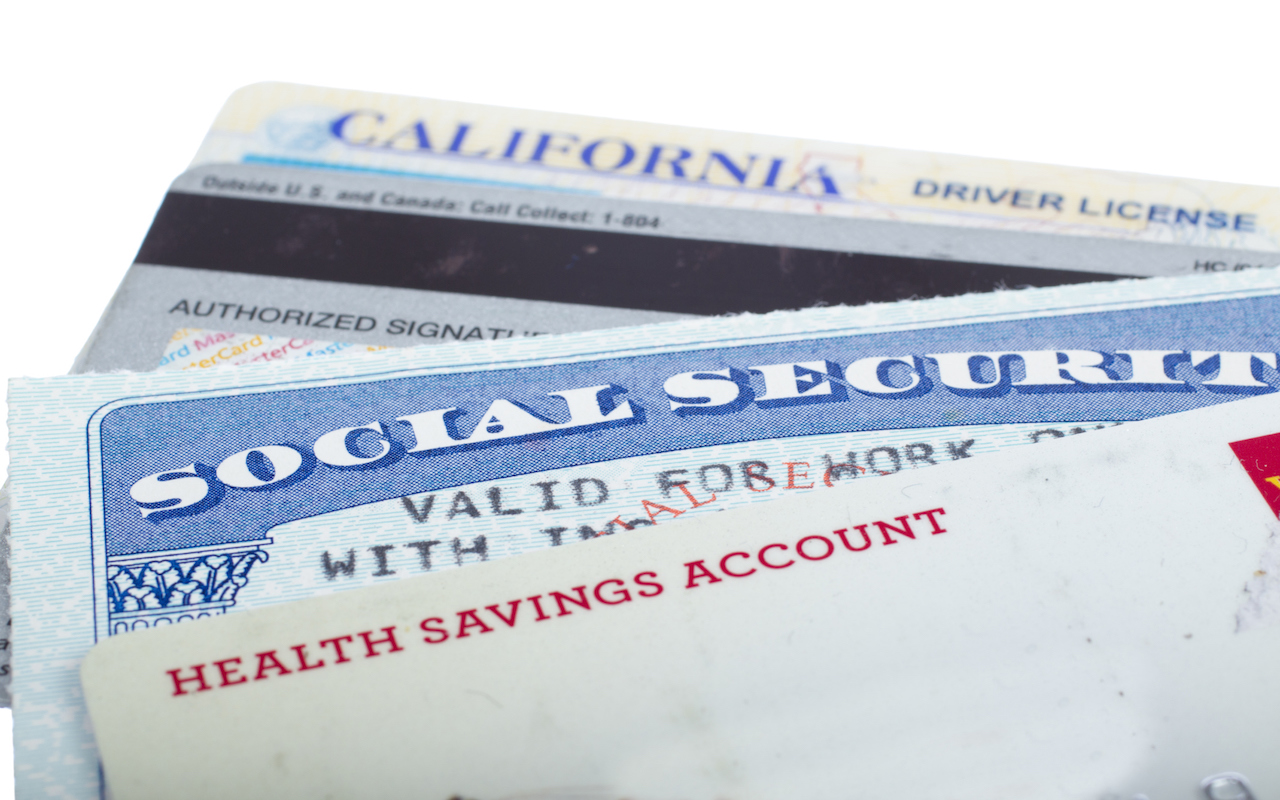
Your Social Security Card...
...and anything with the number on it.
Your nine-digit Social Security number is all a savvy ID thief needs to open new credit card accounts or loans in your name. ID-theft experts say your Social Security card is the absolute worst item to carry around.
Once you’ve removed your card, look for anything else that may contain your SSN. As of December 2005, states can no longer display your SSN on newly issued driver's licenses, state ID cards and motor-vehicle registrations. If you still have an older photo ID, request a new card prior to the expiration date. There might be an additional fee, but it's worth it to protect your identity.
Retirees, pull out your Medicare card, too, because it has your SSN on it.
Instead: Photocopy your Medicare card (front and back) and carry it with you instead of your real card. Experts are torn when it comes to blacking out a portion of your Social Security number on the copy, so to be safe, black out all nine digits. If an appointment requires the full SSN, you can then provide it as needed.
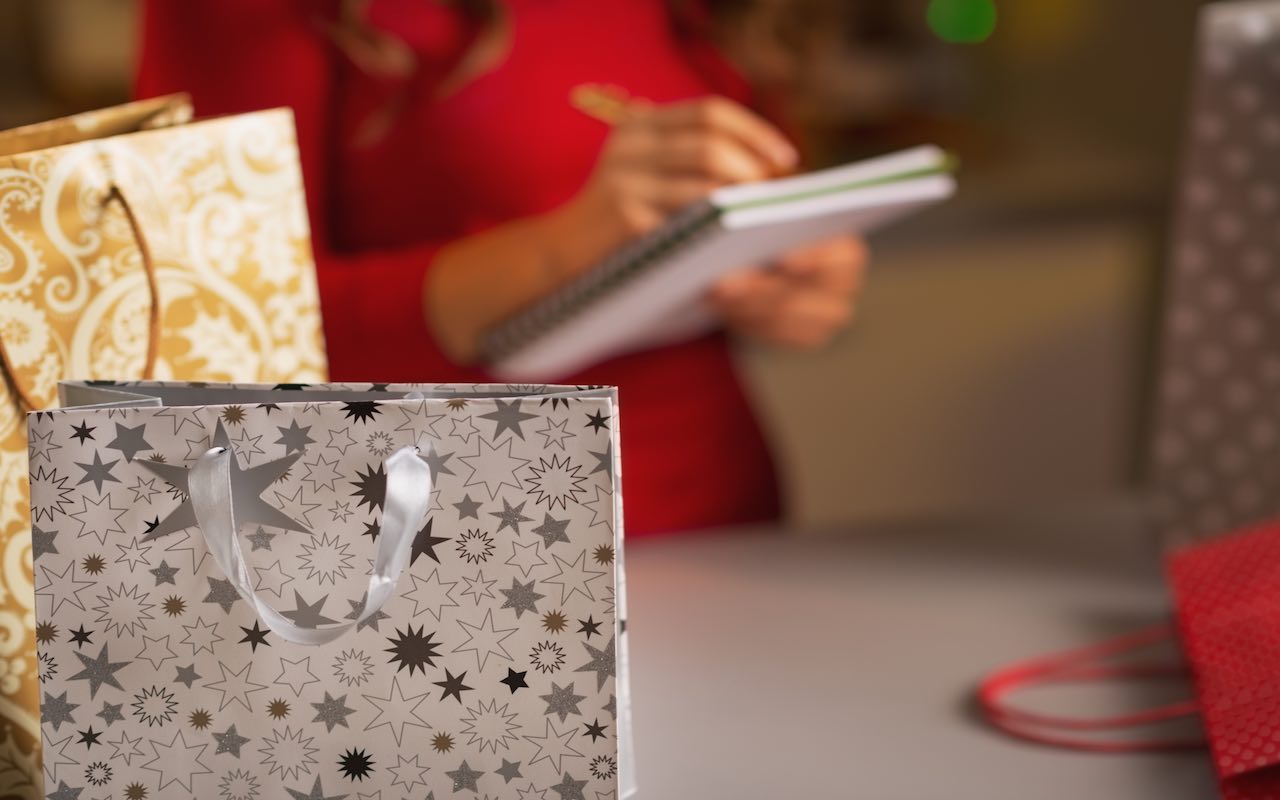
Password Cheat Sheet
The average American uses at least seven different passwords (and probably should use even more to avoid repeating them on multiple sites/accounts). Ideally, each of those passwords should be a unique combination of letters, numbers, and symbols, and you should change them regularly. Is it any wonder we need help keeping track of them all?
However, carrying your ATM card’s PIN number and a collection of passwords (especially those for online access to banking and investment accounts) on a scrap of paper in your wallet is a prescription for financial disaster.
Instead: If you have to keep passwords jotted down somewhere for your online holiday shopping needs, keep them in a locked box in your house. Or consider an encrypted mobile app, such as SplashID (Basic version is free on all major platforms, Pro version is $19.99 annually).

Spare Keys
A lost wallet containing your home address (likely found on your driver's license or other items) and a spare key is an invitation for burglars to do far more harm than just opening a credit card in your name. Don't put your property and family at risk. (And even if your home isn't robbed after losing a spare key, you'll likely spend $100+ in locksmith fees to change the locks for peace of mind.)
And, speaking of keys, be careful what you hand to the valet on your holiday trip, warns Adam Levin, chairman and cofounder of Identity Theft 911. "Remember that every time you stop and hand your key to a valet, depending on what's in the glove box [or trunk], you are making yourself vulnerable."
Instead: Keep your spare keys with a trusted relative or friend. If you’re ever locked out, it may take a little bit longer to retrieve your backup key, but that’s a relatively minor inconvenience.
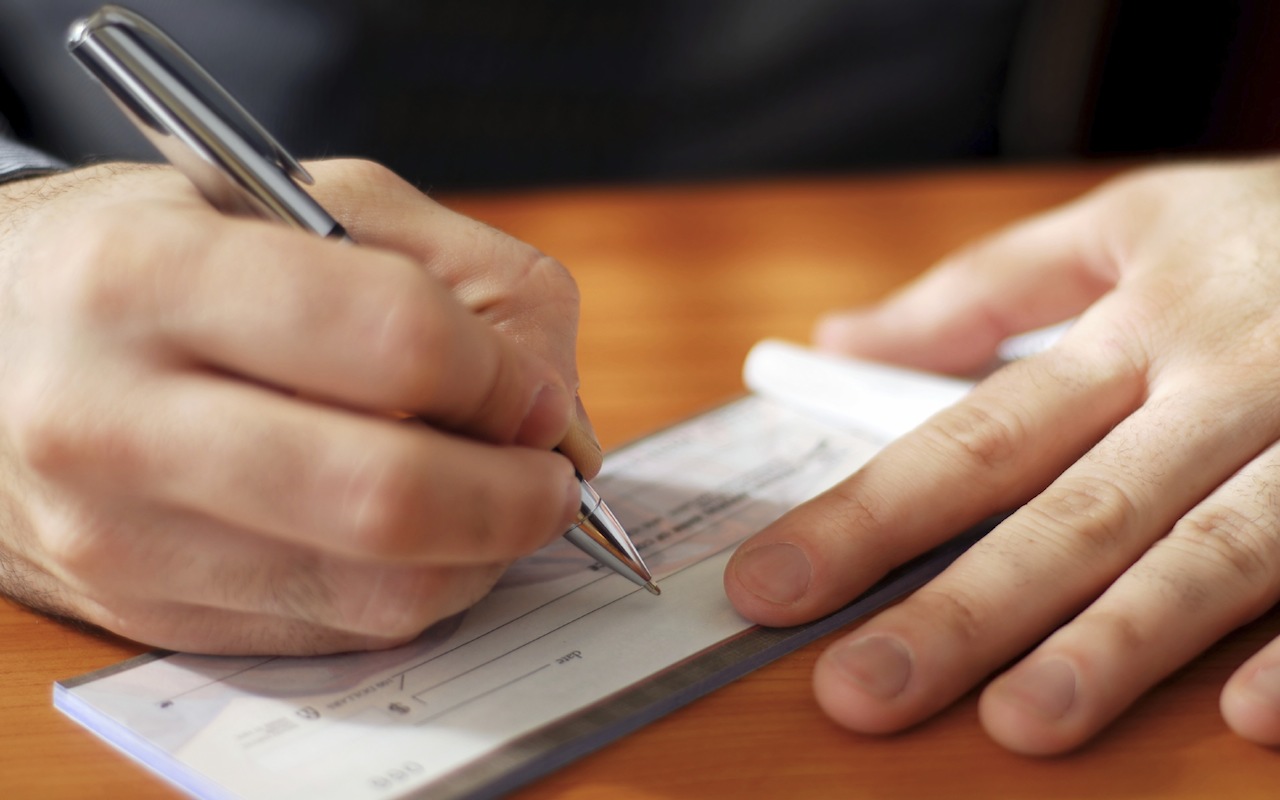
Checks
Blank checks are an obvious risk—an easy way for thieves to quickly withdraw money from your checking account. But even a lost check you've already filled out can lead to financial loss—perhaps long after you've canceled and forgotten about it. With the routing and account numbers on your check, anybody could electronically transfer funds from your account.
Instead: Only carry paper checks when you will absolutely need them. And leave the checkbook at home, bringing only the exact amount of checks you anticipate needing that day.
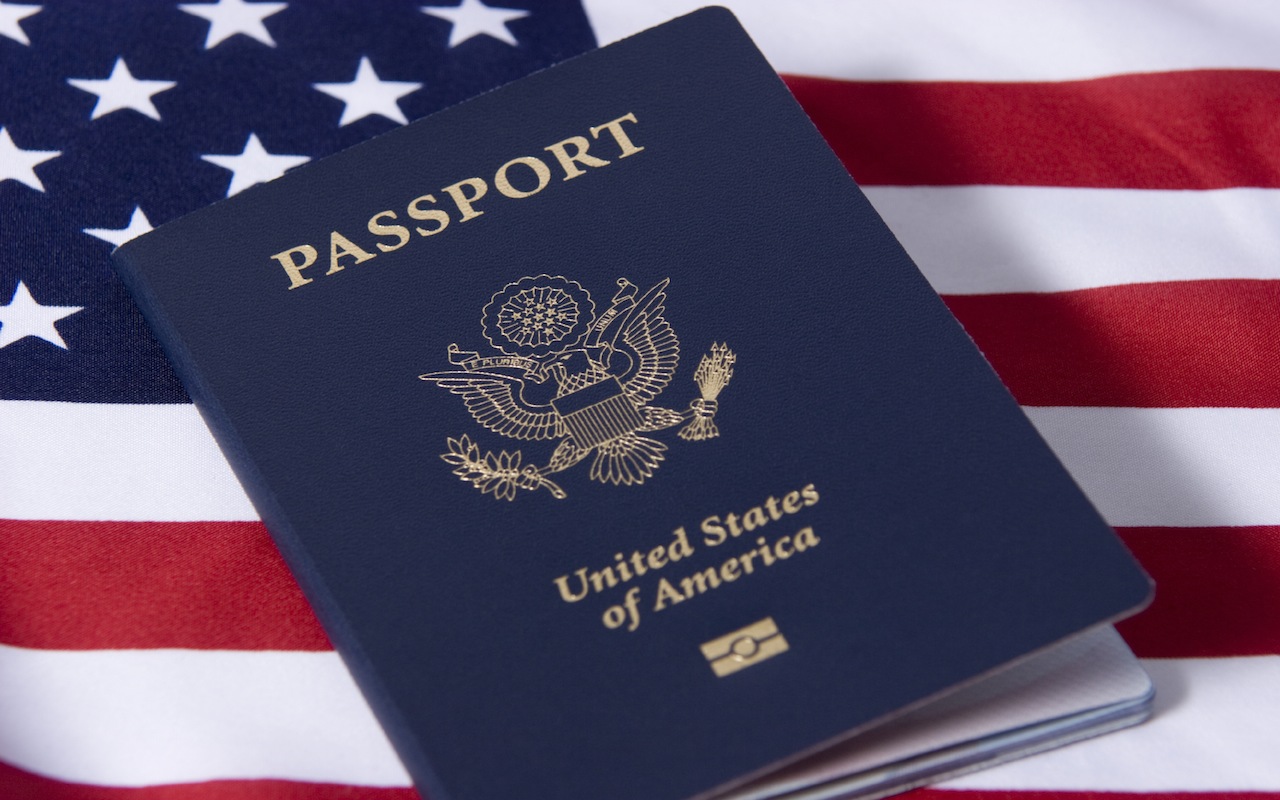
Passport
A government-issued photo ID such as a passport opens up a world of possibilities for an ID thief. “Thieves would love to get (ahold of) this,” says Nikki Junker, a victim adviser at the Identity Theft Resource Center. “You could use it for anything”—including traveling in your name, opening bank accounts or even getting a new copy of your Social Security card.
Instead: Carry only your driver’s license or other personal ID while traveling inside the United States. When you're overseas, photocopy your passport and leave the original in a hotel lockbox.
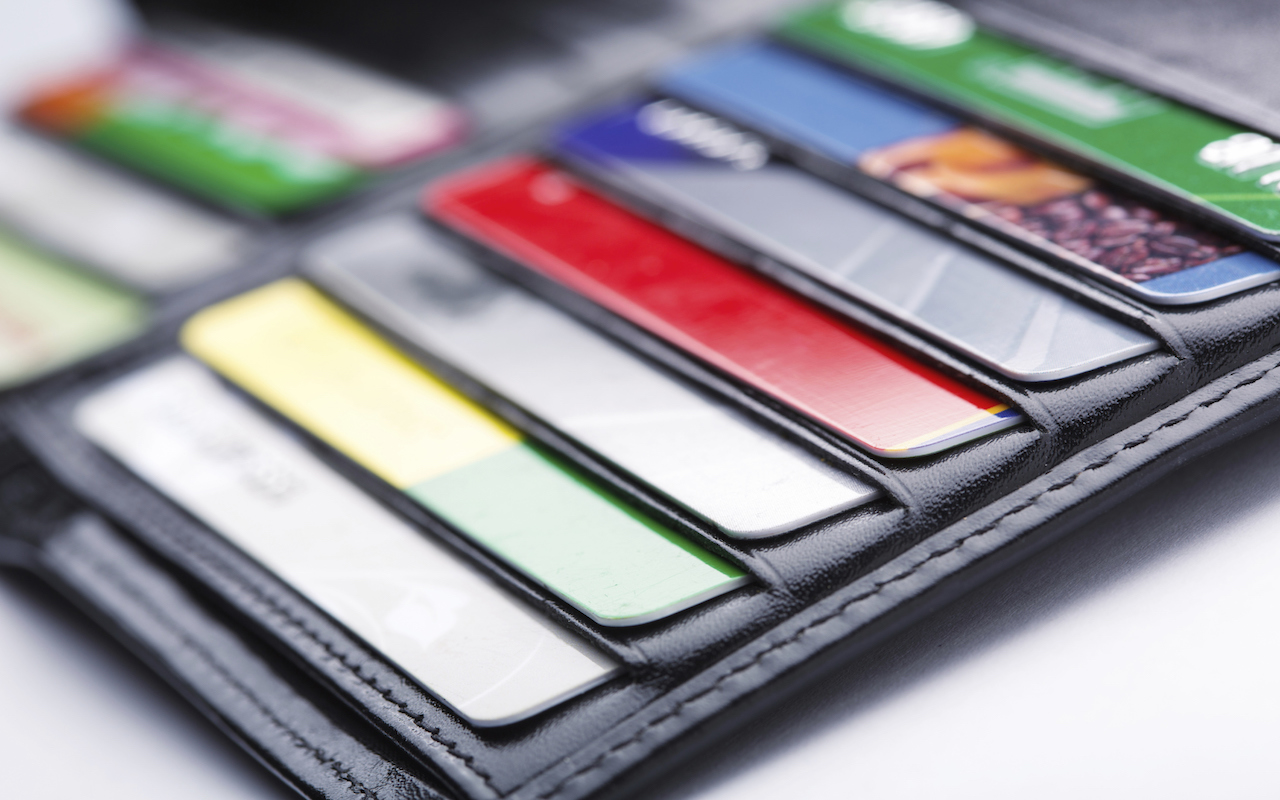
Multiple Credit Cards
Although you shouldn’t ditch credit cards altogether (those who regularly carry a card tend to have higher credit scores than those who don’t), consider a lighter load. After all, the more cards you carry, the more you’ll have to cancel if your wallet is lost or stolen. We recommend carrying a single card for unplanned or emergency purchases, plus perhaps an additional rewards card on days when you expect to buy gas or groceries -- or holiday presents!
Also: Maintain a list, someplace other than your wallet, with all the cancellation numbers for your credit cards. They are typically listed on the back of your cards, but that won’t do you much good when your wallet is nowhere to be found.
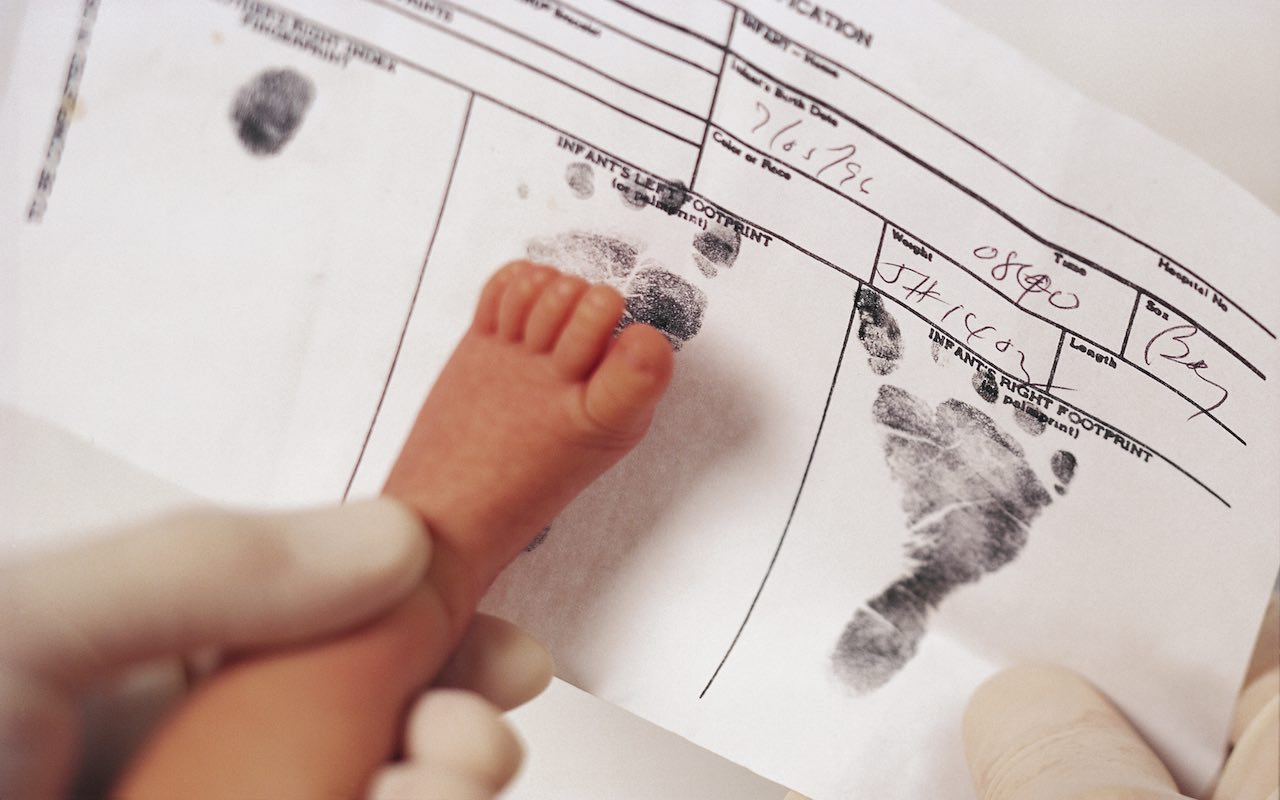
Birth Certificate
The birth certificate itself won’t get ID thieves very far. However, “birth certificates could be used in correlation with other types of fraudulent IDs,” Junker says. “Once you have those components, you can do the same things you could with a passport or a Social Security card.”
Be especially cautious on occasions—such as your mortgage closing—when you may need to present your birth certificate, Social Security card and other important personal documents at once. “Everything’s together,” Junker notes, “and someone can just come along and steal them all. Take the time to take them home, and don’t leave them in your car.”
Profit and prosper with the best of Kiplinger's advice on investing, taxes, retirement, personal finance and much more. Delivered daily. Enter your email in the box and click Sign Me Up.
-
 Nasdaq Leads a Rocky Risk-On Rally: Stock Market Today
Nasdaq Leads a Rocky Risk-On Rally: Stock Market TodayAnother worrying bout of late-session weakness couldn't take down the main equity indexes on Wednesday.
-
 Quiz: Do You Know How to Avoid the "Medigap Trap?"
Quiz: Do You Know How to Avoid the "Medigap Trap?"Quiz Test your basic knowledge of the "Medigap Trap" in our quick quiz.
-
 5 Top Tax-Efficient Mutual Funds for Smarter Investing
5 Top Tax-Efficient Mutual Funds for Smarter InvestingMutual funds are many things, but "tax-friendly" usually isn't one of them. These are the exceptions.
-
 What to Do With Your Tax Refund: 6 Ways to Bring Growth
What to Do With Your Tax Refund: 6 Ways to Bring GrowthUse your 2024 tax refund to boost short-term or long-term financial goals by putting it in one of these six places.
-
 What Does Medicare Not Cover? Eight Things You Should Know
What Does Medicare Not Cover? Eight Things You Should KnowMedicare Part A and Part B leave gaps in your healthcare coverage. But Medicare Advantage has problems, too.
-
 15 Reasons You'll Regret an RV in Retirement
15 Reasons You'll Regret an RV in RetirementMaking Your Money Last Here's why you might regret an RV in retirement. RV-savvy retirees talk about the downsides of spending retirement in a motorhome, travel trailer, fifth wheel, or other recreational vehicle.
-
 The Six Best Places to Retire in New England
The Six Best Places to Retire in New Englandplaces to live Thinking about a move to New England for retirement? Here are the best places to land for quality of life, affordability and other criteria.
-
 The 10 Cheapest Countries to Visit
The 10 Cheapest Countries to VisitWe find the 10 cheapest countries to visit around the world. Forget inflation and set your sights on your next vacation.
-
 15 Ways to Prepare Your Home for Winter
15 Ways to Prepare Your Home for Winterhome There are many ways to prepare your home for winter, which will help keep you safe and warm and save on housing and utility costs.
-
 Six Steps to Get Lower Car Insurance Rates
Six Steps to Get Lower Car Insurance Ratesinsurance Shopping around for auto insurance may not be your idea of fun, but comparing prices for a new policy every few years — or even more often — can pay off big.
-
 How to Increase Credit Scores — Fast
How to Increase Credit Scores — FastHow to increase credit scores quickly, starting with paying down your credit card debt.
